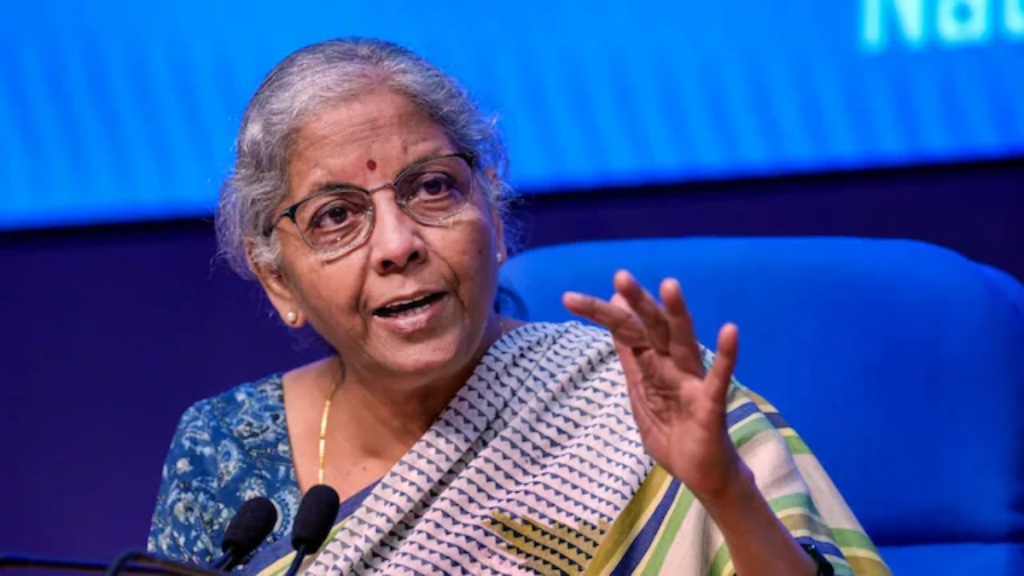Finance minister Nirmala Sitharaman on Friday said India’s economic growth was firmly anchored in its domestic factors, but cautioned that no room for complacency existed. Stating that the country’s rise as a “stabilising force” on the global stage is “neither accidental nor transient,” the minister in tacit reference to the United States said the “absolute dominance once enjoyed by a hegemon is now contested.”
Shifting global order and contested dominance
Speaking at the Kautilya Economic Conclave, Sitharaman said the foundations of global order were shifting, and “what the emerging countries are facing today are not a temporary disruption but a structural transformation.” Trade imbalances hollowed out industries in some nations, while they created overcapacity in others, she noted. The minister said these imbalances made some countries “chronically dependent” on costly imports, while others were subsidising their industries with cheap, carbon-intensive power.
She said the world that emerged after the end of the Cold War, which led to the expansion of globalisation, open markets, and the pursuit of multilateral cooperation, now appeared to be a relic of the past. “History offers no guarantees, but the possibility of a fragmented world, with multiple centres of power, and competing values appears more likely,” she said. In this context, India’s enhanced role resulted from a powerful combination of factors, she added.
Domestic anchors and the roadmap for ‘Viksit Bharat’
“With the steady share of consumption and investment in the overall GDP over the years, India’s growth is firmly anchored in its domestic factors, which minimises the impact of external shocks on overall growth,” she said.
Over the past decade, she said, the government’s focus on fiscal consolidation, improved quality of capital expenditure, and reining in inflationary pressures has been consistent.
The minister said the Centre was committed to increasing states’ capital spending to support economic growth across the country, referring to the non-interest-bearing 50-year capex loans. The Centre is extending Rs 1.5 lakh crore such loans to states in FY26, which it intends to continue in the coming years as well. The centre’s capex has grown on average around 25% in the last four years and is pegged at a record Rs 11.2 lakh crore for FY26.
The Indian economy expanded 7.8% on-year during the April-June quarter, the fastest in five quarters, from 7.4% in the previous three-month period. It is projected to grow at 6.8% for the fiscal year, amid increasing concerns about the impact of US tariff hikes on Indian exports.
She highlighted India’s twin-track approach to prosperity by 2047, focusing on increasing GDP growth to reach around 8% and strategic reforms, Sitharaman said.
The minister lamented the erosion of confidence in multilateral institutions and stressed the need for self-reliance. She stressed the importance of inclusive principles in shaping cooperation and the role of developing nations in rulemaking, underscoring the need for active participation in shaping global outcomes.
According to the minister, net-zero commitments, pursued without regard to trade-offs, risked driving up costs for developing economies while undermining their growth. These imbalances have become structural features of our world, distorting incentives and fuelling political discontent, she said.
US president Donald Trump, through an executive order, imposed an additional 25% “ad valorem” duty on Indian goods for buying Russian crude, effective August 27, taking the total tariff levy on Indian goods to 50%. The tariff increase could make Indian goods uncompetitive as many other Asia Pacific countries attract a 15-20% tariff. The US has also imposed higher tariffs on countries not kowtowing to its demands.
According to the minister, net-zero commitments, pursued without regard to trade-offs, risked driving up costs for developing economies while undermining their growth. These imbalances have become structural features of our world, distorting incentives and fuelling political discontent, she said.
